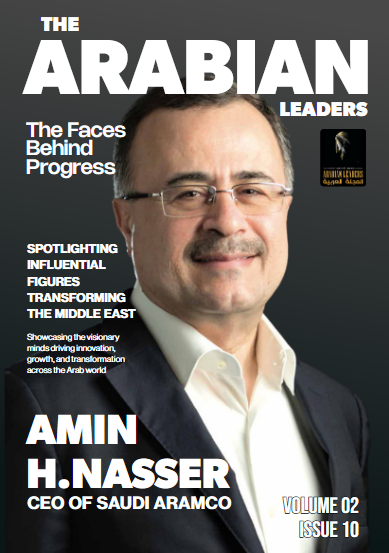In the evolving landscape of Saudi Arabian sports, few figures have been as transformative as Lamia Bahaian. As the first female Vice President of the Saudi Arabian Football Federation (SAFF), her leadership has been pivotal in revolutionizing women’s football in the Kingdom. Her journey reflects a blend of passion, resilience, and strategic vision, aligning seamlessly with Saudi Arabia’s broader objectives under Vision 2030 to promote inclusivity and diversity in all sectors, including sports.
Early Life and Educational Background
Born and raised in Saudi Arabia, Lamia Bahaian exhibited a profound interest in sports from a young age. Her academic pursuits led her to obtain a degree from Chapman University’s School of Law, providing her with a robust foundation in legal principles and governance. This legal background would later prove instrumental in navigating the complex regulatory frameworks of sports administration.
Professional Journey and Entry into Sports Administration
Bahaian’s professional trajectory is marked by a series of strategic roles that bridged her legal expertise with her passion for sports. Before her tenure at SAFF, she served in high-profile roles such as legal chief at prominent financial institutions. She honed her skills in corporate governance, legal compliance, and strategic planning—skills that later became essential in the world of sports administration.
Her transition into sports was a natural evolution, driven by a desire to impact society on a broader scale. Bahaian recognized that sports could serve as a vehicle for social change and national pride, and she sought to leverage her expertise to influence policy and program development at the national level.
Breaking Barriers: Appointment as SAFF Vice President
In a landmark move that resonated across the sports world, Lamia Bahaian was appointed Vice President of the Saudi Arabian Football Federation. This appointment marked the first time a woman held such a senior executive role within the organization. Her presence in the upper echelons of football governance represented a seismic shift in a traditionally male-dominated sphere and symbolized a new chapter for women in Saudi sports.
As Vice President, she brought with her a renewed focus on equity, development, and long-term planning. Her primary mission became the creation of a sustainable ecosystem for women’s football in Saudi Arabia—one that nurtured young talent, empowered female athletes, and ensured organizational excellence.
Revolutionizing Women’s Football in the Kingdom
Under Bahaian’s leadership, the evolution of women’s football in Saudi Arabia was both rapid and strategic. Her administration implemented a series of initiatives designed to build infrastructure, develop talent, and increase public acceptance and support for women in sports.
- Founding Competitive Leagues:
Lamia Bahaian played a central role in the formation of structured women’s leagues, including the Women’s Premier League and the Women’s First Division League. These platforms allowed female footballers to compete professionally and gain exposure on both national and international levels. - Player Registration and Participation:
One of her key achievements was the exponential growth in the number of registered female footballers. In just a couple of years, the number of women formally involved in the sport grew significantly—highlighting both the demand and the success of her inclusive policies. - Infrastructure and Club Development:
Bahaian oversaw the expansion of women’s football clubs across Saudi Arabia. This not only increased access to the sport but also created employment opportunities in coaching, management, and sports medicine for women. - Youth Programs and Talent Development:
Recognizing the importance of early talent identification, Bahaian advocated for football programs in schools and community centers. These programs aimed to cultivate skills and foster a lifelong love for the game among young girls.
Strategic Collaborations and Global Outreach
Bahaian has also played a key role in positioning Saudi Arabia as a serious contender in the international football scene. Her efforts have led to collaborations with organizations such as FIFA and other international governing bodies to exchange knowledge and adopt global best practices.
She has represented the Kingdom at numerous global forums, advocating for greater investment in women’s football and sharing insights from Saudi Arabia’s unique transformation. In these spaces, she has emerged not only as a Saudi leader but as a global advocate for gender equality in sports.
Commitment to Vision 2030
Saudi Arabia’s Vision 2030 includes ambitious goals around female empowerment, youth development, and social reform. Lamia Bahaian’s work aligns perfectly with this vision, particularly in the realm of increasing women’s participation in all sectors of society.
She has become a leading figure in demonstrating how sports can serve as a platform for achieving national transformation. Through her work, the narrative around Saudi women has shifted—portraying them not just as participants, but as leaders, innovators, and role models.
Addressing Cultural and Structural Barriers
The journey to where women’s football stands today in Saudi Arabia has not been without challenges.
- Societal Resistance:
Initially, cultural barriers presented significant resistance to women’s participation in football. Bahaian tackled these perceptions head-on through awareness campaigns, community engagement, and strategic communication. - Infrastructure Gaps:
Developing adequate facilities for female athletes required extensive planning and financial investment. Bahaian’s leadership helped prioritize these efforts, resulting in an increase in dedicated stadiums, training centers, and club-level resources for women. - Limited Access to Coaching and Training:
One of the earliest obstacles in promoting women’s football was the scarcity of qualified coaches, especially female coaches. Under Bahaian’s direction, certification programs and workshops were launched, dramatically increasing the number of women eligible to coach at different levels.
Developing the Next Generation of Female Leaders in Sport
Bahaian’s mission goes beyond just creating athletes; she envisions a complete sports ecosystem where women play central roles as managers, officials, coaches, and executives. Her mentorship initiatives aim to equip young women with the skills, confidence, and opportunities necessary to lead in the sports industry.
She has championed leadership programs for women in sports management, ensuring that gender equity is not limited to the playing field but extends into boardrooms, regulatory bodies, and policymaking institutions.
Media Presence and Public Perception
Lamia Bahaian’s visibility in media campaigns, national events, and international conferences has significantly influenced public perception. She has become a familiar face representing women’s empowerment, and her media engagement reflects a calculated approach to normalize the presence of women in influential sports roles.
Her story has inspired documentaries, interviews, and editorial features that highlight not just her professional accomplishments, but also her personal resilience and vision for the future of Saudi women in sports.
Legacy and Long-Term Impact
Lamia Bahaian’s contributions are not limited to short-term wins. She is laying the groundwork for a lasting legacy in which the structure, governance, and culture of Saudi football reflect the values of equality, professionalism, and growth.
Her efforts have already produced measurable change:
- A new generation of young girls growing up with role models in sports
- Institutional reforms that mandate gender diversity in sports leadership
- A cultural shift that celebrates rather than resists female participation in competitive athletics
As more women follow in her footsteps and take on roles across the sports sector, the ripple effect of her impact will continue for generations.
Conclusion
Lamia Bahaian stands as a pioneering figure in the transformation of Saudi Arabian sports. Her influence transcends football and speaks to a broader narrative of empowerment, reform, and progress. With unwavering dedication, strategic foresight, and a deep understanding of her nation’s cultural and institutional landscape, she has redefined what is possible for women in sports.
As Vice President of SAFF, she continues to lead a movement that is not just about winning games, but about rewriting history. Her journey is a powerful reminder that change is not only possible—it is inevitable when driven by courage, vision, and leadership.








